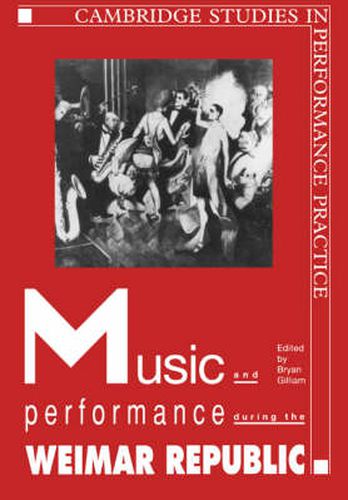Readings Newsletter
Become a Readings Member to make your shopping experience even easier.
Sign in or sign up for free!
You’re not far away from qualifying for FREE standard shipping within Australia
You’ve qualified for FREE standard shipping within Australia
The cart is loading…






Following the collapse of the Wilhelmine Empire in Germany, a new generation of artists found a fresh environment where they might flourish. Their optimism was accompanied by an equally powerful distrust of the immediate past, for post-romanticism - and ultimately expressionism - served as symbols of a bygone era. Composers, performers, and audiences alike sought to negate their recent past in various ways: by affirming modern technology (electronic or mechanical music, sound recordings, radio, and film), exploring music of a more remote past (principally Baroque music), and celebrating popular music (particularly jazz). The essays contained in this volume address these fundamental themes. Examining the way in which German music was performed, staged, programmed, and received in the 1920s, they not only offer deeper insights into Weimar culture itself but shed light on our contemporary musical world.
$9.00 standard shipping within Australia
FREE standard shipping within Australia for orders over $100.00
Express & International shipping calculated at checkout
Following the collapse of the Wilhelmine Empire in Germany, a new generation of artists found a fresh environment where they might flourish. Their optimism was accompanied by an equally powerful distrust of the immediate past, for post-romanticism - and ultimately expressionism - served as symbols of a bygone era. Composers, performers, and audiences alike sought to negate their recent past in various ways: by affirming modern technology (electronic or mechanical music, sound recordings, radio, and film), exploring music of a more remote past (principally Baroque music), and celebrating popular music (particularly jazz). The essays contained in this volume address these fundamental themes. Examining the way in which German music was performed, staged, programmed, and received in the 1920s, they not only offer deeper insights into Weimar culture itself but shed light on our contemporary musical world.